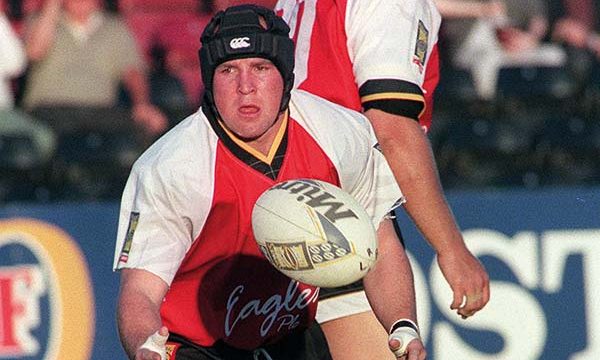 Fomrer Ireland star Johnny Lawless has urged the RLI not to go ahead with their plans to reduce the use of heritage players.
The former Sheffield and Halifax hooker played 10 times for Ireland during his career and featured in their successful 1999 World Cup campaign that saw them reach the quarter-finals.
Lawless, speaking exclusively to Rug
Fomrer Ireland star Johnny Lawless has urged the RLI not to go ahead with their plans to reduce the use of heritage players.
The former Sheffield and Halifax hooker played 10 times for Ireland during his career and featured in their successful 1999 World Cup campaign that saw them reach the quarter-finals.
Lawless, speaking exclusively to Rug Former Ireland ace Lawless pleads with RLI to re-think heritage proposals
 Fomrer Ireland star Johnny Lawless has urged the RLI not to go ahead with their plans to reduce the use of heritage players.
The former Sheffield and Halifax hooker played 10 times for Ireland during his career and featured in their successful 1999 World Cup campaign that saw them reach the quarter-finals.
Lawless, speaking exclusively to Rug
Fomrer Ireland star Johnny Lawless has urged the RLI not to go ahead with their plans to reduce the use of heritage players.
The former Sheffield and Halifax hooker played 10 times for Ireland during his career and featured in their successful 1999 World Cup campaign that saw them reach the quarter-finals.
Lawless, speaking exclusively to Rug 